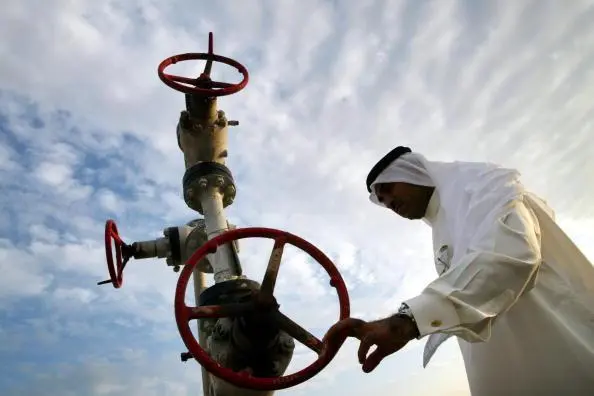PHOTO
A major offshore oil and gas exploration project off Bahrain’s north coast is due to start in the first quarter of next year.
Tatweer Petroleum has partnered with Italian firm Eni to seek out deposits in an area known as “offshore block one”, which measures 2,800 square kilometres.
Oil Minister Shaikh Mohammed bin Khalifa Al Khalifa told MPs yesterday that previous attempts in that area had failed, but expressed hope that Eni’s expertise in offshore exploration would bear fruit.
Eni has already conducted a study of the area, in which water depths range from 10 to 70 metres, and signed a Memorandum of Understanding (MoU) with the National Oil and Gas Authority in January this year.
Shaikh Mohammed said the terms of the deal were favourable for Bahrain if any reserves are discovered.
“It was a very good agreement, with Bahrain’s taking up to 80pc of the share if there are oil discoveries,” he said.
“This is besides a 46pc oil and gas income tax on Eni.
“The agreement comes at a time when oil prices have dropped and companies are reluctant to get involved in oil exploration that may or may not be successful.
“We completed a two-year study phase before we signed the agreement.”
Several MPs expressed reservations to the deal, claiming there were insufficient guarantees relating to matters such as environmental protection and Bahrainsation.
However, those concerns were allayed by the minister.
“The deal has been negotiated by the best in the field in Bahrain, in the interests of the country and future generations – in respect to the environment, training, labour and other rules and laws that govern the company’s work,” he said.
His Majesty King Hamad previously issued a Royal Decree during the National Assembly’s recess, authorising Noga to sign an oil exploration and production sharing agreement with Eni.
Some MPs yesterday demanded that decree be suspended indefinitely, prompting financial and economic affairs committee chairman MP Ahmed Al Salloom to respond that he would review the agreement again.
However, the deal is likely to be rubber stamped next week when MPs are due to vote retrospectively on the decree.
Shaikh Mohammed said there had been repeated attempts to find oil off Bahrain’s north coast, but they had all been unsuccessful.
“It was not just in 2008 when we excavated the area,” he said.
“There were attempts in the 1950s and 1960s. We don’t know if Eni will find oil and gas based on scientific research or will be lucky, as they were with new gas fields in Egypt and Mozambique.
“If they are lucky we need their luck here and we hope legislators will pray for them to be so.
“We should be content that we have a concession agreement, which is rare around the world and only present in the UAE, Oman and Iraq.
“Bahrain will not incur any costs and everything will be covered by Eni, so there are no financial burdens and all risks will be taken by them.
“A respected consultancy has told us the terms are higher than any in the region.
“The deal is not for 50 years as MPs are saying, it is for 25 – including seven years of exploration.”
However, he said the deal was not connected to the discovery of oil off Bahrain’s west coast.
“It has nothing to do with the shale oil discovery from April last year,” he said.
Mr Al Salloom described the agreement with Eni as one of the best he had ever seen, given the benefits to Bahrain while all expenses are handled by Eni.
“The profits system favours Bahrain clearly, so does the exploration and excavation work,” he said.
However, among MPs who voiced concern was Dr Hisham Al Asheeri, who admitted that he was no expert – but feared Eni knew more about Bahrain’s oil potential than it let on.
“We are an oil-based country and Eni didn’t sign the agreement based on pure luck,” he said.
“They must know after two years of study that there is something that will make them huge profits.
“Under the contract, the company is not obliged to employ any Bahraini in the first phase.”
Meanwhile, he claimed any future dispute with the company would not be a matter for Bahrain’s courts.
“Any dispute is not resolved in our courts, it is left to international arbitrators,” he said.
“But again, the government doesn’t want us to be worried.”
mohammed@gdn.com.bh
© Copyright 2019 www.gdnonline.com
Copyright 2019 Al Hilal Publishing and Marketing Group Provided by SyndiGate Media Inc. (Syndigate.info).





















